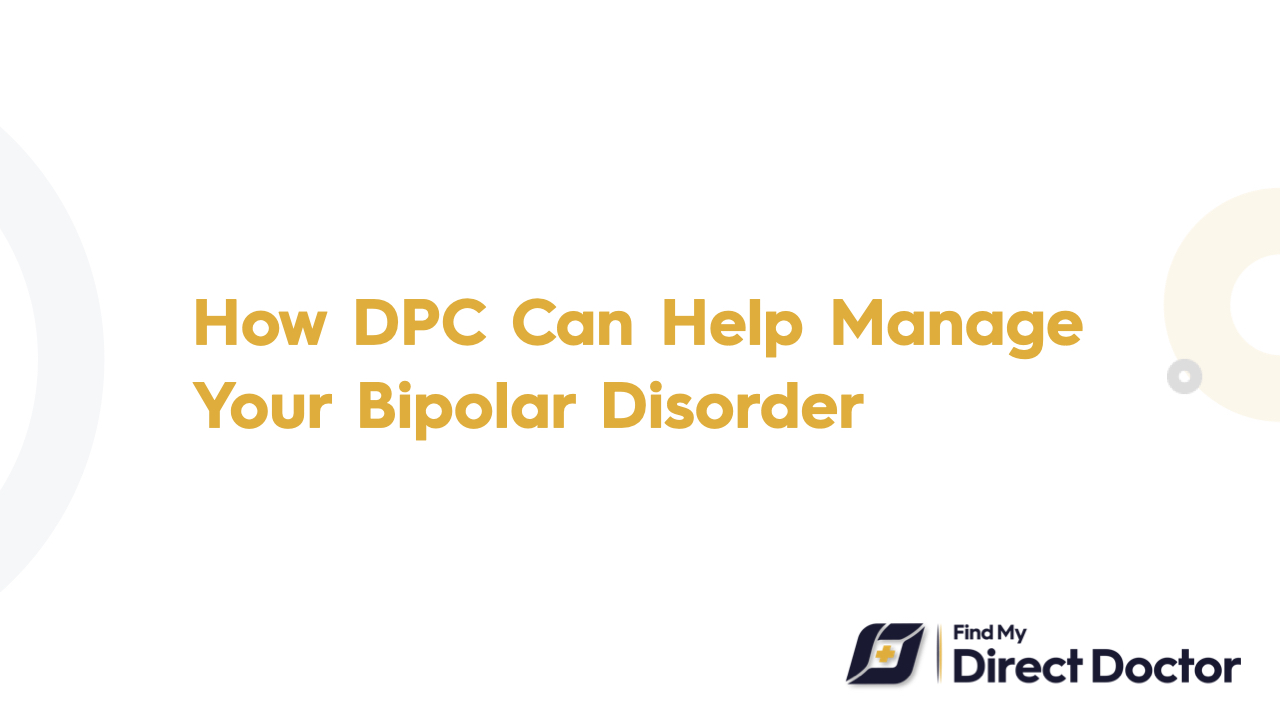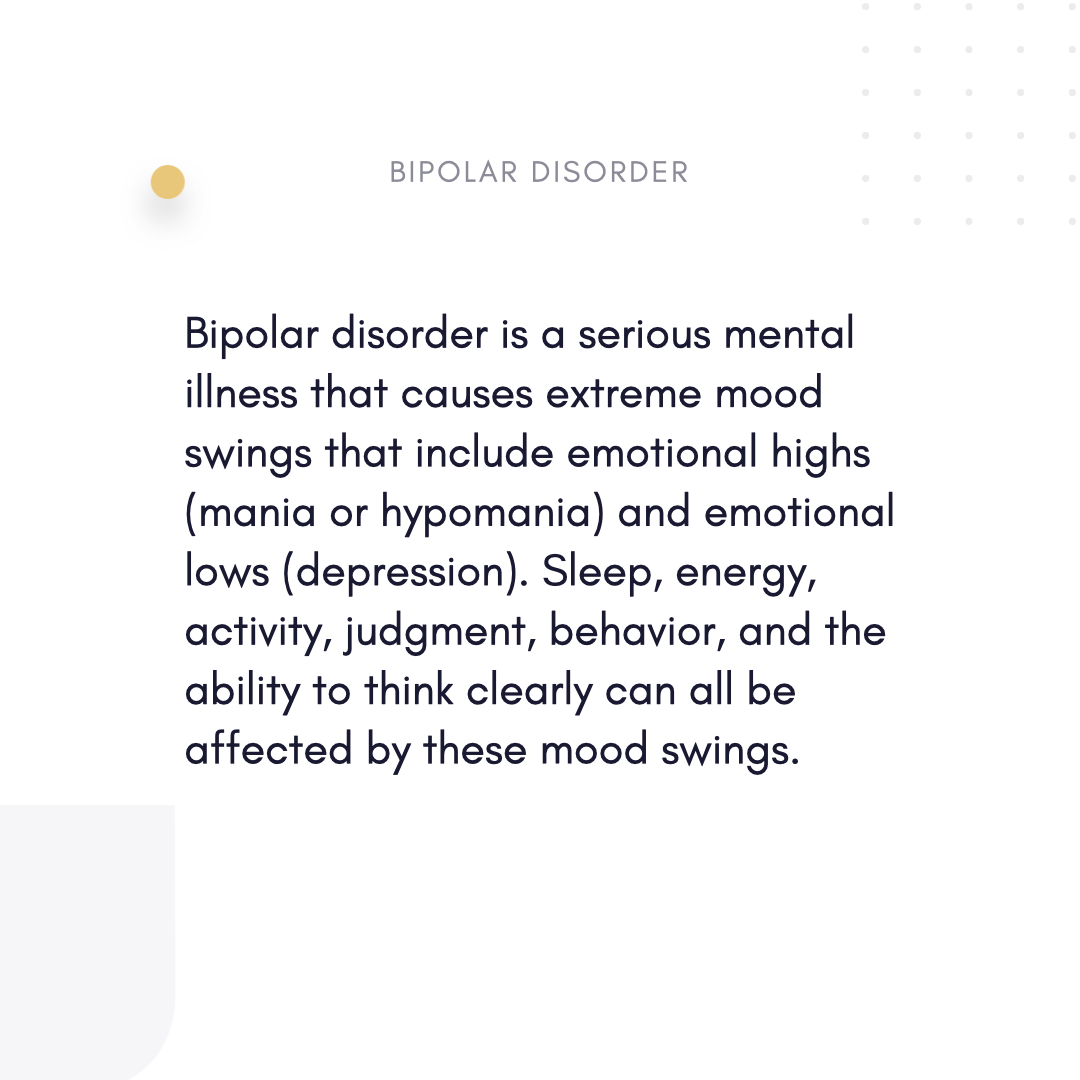Direct Primary Care (DPC) for Bipolar Disorder: Personalized, Proactive Support for Stability
Mania and depression are extreme mood swings that define bipolar disease, which requires constant, coordinated treatment to prevent relapses and improve quality of life. Essential for effectively managing this complex illness, Direct Primary Care (DPC) offers a patient-centered model stressing accessibility, continuity, and tailored treatment.

Rapid Intervention and Continuous Monitoring
- One has quick access during episodes:
- Change medications or handle safety concerns without waiting during manic or depressed episodes.
- Direct Correspondence: For rapid changes in medication, text or call your doctor; this will help to reduce ER visits during crises.
- Medication Administration:
- Normal Bloodwork: Track thyroid activity, lithium levels, metabolic side effects—like antipsychotic weight gain.
- Following guidelines: assist Using blister packs or app reminders, simplify regimens to reduce missed doses during mood swings.
- Cooperation of Coordinated Care:
- Team with mental health specialists for mood stabilizers, antipsychotics, or antidepressants.
- Method of treatment Refer to cognitive-behavioral therapy (CBT) or family counseling to manage triggers and coping strategies.
DPC Bipolar Management Customized
- One plans of holistic living:
- Light treatment and structured sleep schedules assist to balance circadian rhythms.
- Add yoga, mindfulness, or journaling to help with episode prevention and anxiety control.
- Addiction to Chemicals Consultation: Attend to drug or alcohol use aggravating mood instability.
- Techniques for Stopping Crisis:
- Development of Safety Plan ahead for suicidal thoughts or manic spending including trusted family members.
- Tools for mood charting enable you to identify patterns and aggressively change treatments.
- Handling Complications:
- Look for thyroid issues, ADHD, or anxiety that throws off bipolar treatment.
- Talk about metabolic health: that is, weight, diabetes—linked to side effects from drugs.
Why DPC Excels in Bipolar Treatment?
- Continuity and accessibility:
- Regular follow-ups enable early mood swings to be found and rapidly change treatment plans in compliance with APA guidelines.
- Build confidence with a provider aware of your background to help to reduce the fragmentation of your treatment.
- Cost Transparency:
- Usually, membership covers regular blood tests and discounted psychological visits.
- Here there are not any insurance problems. Eliminate delays for prior authorization of critical medications or treatments.
- Focus based on patients tailored treatment:
- Change strategies depending on personal reactions to drugs, therapy, or lifestyle modification.
- Models of collaborative care allow mental health support and management right into main care.
The DPC Advantage for Bipolar Patients
- Stopped Relapses: Regular visits and short changes help to reduce hospitalization risk.
- Whole-person treatment: Covers psychological, social, and physical factors affecting stability.
- One can become independent: By means of education on self-advocacy and symptom recognition.
Last Thoughts
Bipolar disorder feeds on consistent monitoring, medications, and support. DPC's approach offers this via readily available, customized relationships that conventional treatment sometimes lacks. Combining proactive symptom tracking, crisis prevention, and collaborative care—all of which help to reduce the administrative loads that tax traditional practices—DPC helps patients reach stability.






